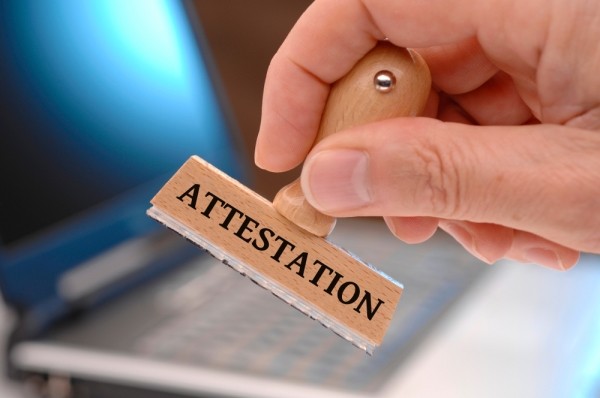In an increasingly globalized world, the dream of living, working, or studying abroad is more accessible than ever before. However, amidst the excitement of exploring new opportunities in foreign lands, one often overlooked yet crucial aspect is the bureaucratic process involved in securing the necessary visas and permits. Among these requirements, birth certificate attestation plays a pivotal role. While it may seem like just another step in an already complex process, its importance cannot be overstated. This article delves into why birth certificate attestation is a vital component of your visa application, simplifying the often-daunting visa process.
Understanding Birth Certificate Attestation
Before diving into the importance of birth certificate attestation, it’s essential to understand what it entails. Attestation is the process of verifying the authenticity of a document. In the case of a birth certificate, it involves getting the certificate authenticated by various authorities, confirming that the document is genuine and has been issued by a recognized entity.
Birth certificate attestation is often required when you are applying for visas, especially for long-term stays like work, student, or residency visas. It serves as proof of your identity, date of birth, and nationality, which are fundamental details required by immigration authorities. The attestation process usually involves several steps, including notarization, verification by government departments, and sometimes, attestation by the embassy of the destination country.
Why Birth Certificate Attestation Matters
**1. Legal Recognition and Acceptance
One of the primary reasons birth certificate attestation is crucial is that it ensures your birth certificate is legally recognized in the destination country. Different countries have their own standards and protocols for accepting foreign documents. An unattested birth certificate might be dismissed as invalid or fraudulent, leading to unnecessary delays or rejections in your visa process.
By getting your birth certificate attested, you are essentially getting it verified by your home country’s authorities and then re-verified by the destination country’s embassy or consulate. This dual verification process gives the document a seal of authenticity, making it legally acceptable in the destination country.
**2. Smooth Visa Application Process
The visa application process can be intricate, with numerous documents required to be submitted within tight deadlines. Birth certificate attestation is often a mandatory requirement, and failure to provide an attested document can lead to delays or even rejection of your visa application. Having your birth certificate attested beforehand ensures that your visa application is complete, helping you avoid last-minute stress and potential setbacks.
Moreover, in some countries, attested birth certificates are required not only for visa applications but also for various legal procedures once you arrive, such as obtaining a residence permit, opening a bank account, or enrolling in educational institutions. Having this attested document ready in advance can save you from future complications.
**3. Verification of Identity and Background
Immigration authorities place a significant emphasis on verifying the identity and background of visa applicants. An attested birth certificate serves as a reliable source of personal information, including your name, date of birth, place of birth, and parentage. This information is crucial for establishing your identity and ensuring that you meet the eligibility criteria for the visa you are applying for.
In cases where the birth certificate is not attested, authorities might question its validity, leading to additional scrutiny and possible delays in the processing of your visa. By getting your birth certificate attested, you provide the authorities with a verified document that corroborates your identity and background, facilitating a smoother and faster visa approval process.
**4. Facilitating Dependent Visas and Family Reunification
For individuals applying for dependent visas, such as those for spouses, children, or elderly parents, birth certificate attestation is often a mandatory requirement. It serves as proof of the familial relationship between the visa applicant and the dependent. For instance, if you are applying for a visa for your child, an attested birth certificate is essential to establish the child’s identity and your relationship with them.
Additionally, in cases of family reunification, where family members are joining a primary visa holder in a foreign country, attested birth certificates are often required for all family members. This ensures that the immigration authorities recognize the family ties and grant the necessary visas accordingly.
**5. Compliance with International Legal Requirements
Different countries have varying legal requirements for accepting foreign documents. Birth certificate attestation ensures that your document complies with the specific legal standards of the destination country. This compliance is particularly important for countries that have stringent immigration laws and document verification processes.
For instance, countries in the Middle East, such as the UAE, Saudi Arabia, and Qatar, have strict rules regarding document attestation. In these countries, an unattested birth certificate would not be accepted for any official purpose, including visa applications. By getting your birth certificate attested, you ensure that it meets the legal requirements of the destination country, making your visa application process more straightforward.
**6. Enhancing Credibility and Trust
An attested birth certificate enhances your credibility as a visa applicant. It shows that you have taken the necessary steps to verify your identity and comply with the legal requirements of both your home country and the destination country. This proactive approach can positively influence the visa authorities’ perception of your application, increasing the likelihood of approval.
Moreover, in cases where the visa application involves multiple stages or additional scrutiny, an attested birth certificate can serve as a solid foundation for your application. It provides the authorities with a trustworthy document that has been verified by multiple entities, reducing the chances of any doubts or concerns about your identity.
**7. Mitigating Risks of Fraud and Misrepresentation
Visa fraud and document forgery are significant concerns for immigration authorities worldwide. To combat these issues, many countries have implemented stringent document verification processes, including the requirement for attestation. By getting your birth certificate attested, you mitigate the risks of your document being flagged as fraudulent or misrepresented.
Attestation involves multiple levels of verification, starting from notarization to government department verification and finally embassy attestation. This multi-step process significantly reduces the chances of fraudulent documents slipping through the cracks. As a result, an attested birth certificate is viewed as a more credible and reliable document by immigration authorities, reducing the risk of your visa application being rejected due to concerns about document authenticity.
**8. Simplifying Future Legal Processes
Once you have successfully obtained your visa and moved to your destination country, there may be several legal processes you need to undertake, such as registering your stay, applying for a residence permit, or enrolling in educational institutions. In many cases, these processes require the submission of an attested birth certificate.
By having your birth certificate attested in advance, you simplify these future legal processes. You won’t need to go through the hassle of getting the document attested while you are already abroad, which can be more complicated and time-consuming. Instead, you’ll have a ready-to-use, legally recognized document that can be presented whenever required.
How to Get Your Birth Certificate Attested
Now that we’ve established the importance of birth certificate attestation, let’s explore the process of getting it done. The attestation process can vary depending on your home country and the destination country, but it generally involves the following steps:
**1. Notarization
The first step in the attestation process is to get your birth certificate notarized by a licensed notary public. This step involves verifying that the document is a true copy of the original and that the information contained in it is accurate. The notary public will place a seal or stamp on the document, indicating that it has been notarized.
**2. Home Country Verification
After notarization, the birth certificate needs to be verified by the relevant government departments in your home country. This may include the Ministry of Foreign Affairs, the Ministry of Justice, or other relevant authorities, depending on your country’s specific requirements. This step is crucial for establishing the document’s authenticity within your home country.
**3. Embassy Attestation
The final step in the attestation process is to get the birth certificate attested by the embassy or consulate of the destination country. This involves submitting the notarized and government-verified document to the embassy, where it will be further authenticated to meet the legal standards of the destination country.
In some cases, the embassy may require additional documents or fees for the attestation process. It’s essential to check the specific requirements of the destination country’s embassy before starting the attestation process to ensure that you have all the necessary documentation.
**4. Apostille (If Applicable)
If you are applying for a visa to a country that is a member of the Hague Apostille Convention, you may need to get an apostille for your birth certificate instead of embassy attestation. An apostille is a simplified form of document legalization that is recognized by all member countries of the convention.
To obtain an apostille, you will need to submit your notarized birth certificate to the relevant government authority in your home country, usually the Ministry of Foreign Affairs or the equivalent department. Once the apostille is attached to your birth certificate, it will be recognized as a legally valid document in all member countries.
Common Challenges and How to Overcome Them
While the birth certificate attestation process is straightforward in theory, it can be challenging in practice. Here are some common challenges you might encounter and how to overcome them:
**1. Incomplete Documentation
One of the most common challenges is incomplete documentation. Missing signatures, incorrect information, or an outdated birth certificate can lead to delays in the attestation process. To avoid this, make sure your birth certificate is up-to-date and contains all the necessary information before starting the attestation process.
**2. Delays in Government Processing
Government departments responsible for verifying and attesting documents can sometimes take longer than expected to process your application. To minimize delays, start the attestation process well in advance of your visa application deadline. Additionally, consider using a professional attestation service that can expedite the process.




